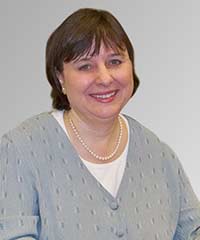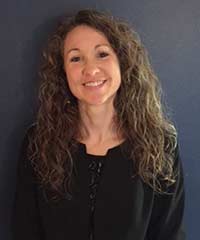Creating Career Pathways for Youth with Mental Health Conditions
About the Webcast
The Center on KTDRR at the American Institutes for Research supports webcasts and a Community of Practice that examine issues and challenges around evidence-based practice and vocational rehabilitation (VR). This is the ninth webcast in a series that examines the links between VR research and practice. Here a researcher, Dr. Marsha Ellison, and a VR practitioner, Ms. Sandra Miller, discuss career pathways strategies that support the employment of youth with mental health conditions.
The webcast follows the thread of the relationship between research and practice as it relates to supporting individuals with disabilities returning to work. The webcast organizers do not mean to endorse a specific intervention as an appropriate approach for VR, but rather to explore how research has been conducted and applied, through training, to inform VR practices.
View the Archive
-
The webcast originally aired via YouTube on February 17, 2016 at
https://youtu.be/xKLNObuGClU (opens new window) You do not need a YouTube account to participate.- To increase volume, turn up the volume on your computer and use the volume bar on bottom left side of the YouTube video window.
- Captioning is available by selecting the "CC" option on the bottom right side of the video window. Click on "Options" to change the font, size, and color of the captions.
- Additional tools on the bottom right side: "Settings" increase the video quality; "Theater mode" (default)/"Full screen."
- Edited transcript of the presentation (MS Word™ DOC)
Presentation Materials:
- Download a PDF copy of the slides used during the session: webcast_021716.pdf
- Text version of PowerPoint™ presentation: webcast_021716.docx
- View an alternative version of the webcast at this link http://sedl.adobeconnect.com/p83szkhfnax/
- Please fill out the brief evaluation after viewing the webcast.
About the Presenters

Marsha Langer Ellison, PhD., is an Associate Professor in the Department of Psychiatry at the University of Massachusetts Medical School and a Health Research Scientist at the Bedford MA Veterans Administration Hospital. She has decades of funded research on recovery and psychosocial rehabilitation for people with mental illness. Currently she serves as a Deputy Director for the Learning and Working During the Transition to Adulthood Research and Training Center (Transitions RTC) funded by the National Institute on Disability, Independent Living, and Rehabilitation Research (NIDILRR). This Center conducts research on interventions that speed the recovery and community integration of youth and young adults with serious mental health conditions. Most recently, Dr. Ellison was co-Director of a contract with the federal office of the Assistant Secretary of Planning and Evaluation on the state of practice in supported education. In the past five years, Dr. Ellison served as Principal Investigator for a project that supported employment services for youth in residential settings.

Sandra Miller, is the Transition Coordinator for the Division of Vocational Rehabilitation (DVR) in Delaware. She graduated from the University of Wisconsin-Madison with a Master’s Degree in Rehabilitation Psychology and has over 16 years of experience working in the field of employment for individuals with disabilities. Her experience includes working with both non-profit and state VR agencies. She started her career working for community rehabilitation providers offering supported employment services in both Madison, WI and Lexington, KY. After moving to Delaware, she spent four years working as a Vocational Rehabilitation Counselor for the Division for the Visually Impaired. Sandra has been with the DVR since 2007, initially working as the Training Coordinator and overseeing supported employment services. In her current position, she manages the transition programs at DVR including implementation of the Workforce Innovation and Opportunity Act (WIOA), program development, and collaborating with a variety of stakeholders statewide.
- Last Updated:
- Tuesday, 23 July 2024 at 07:40 PM CST
